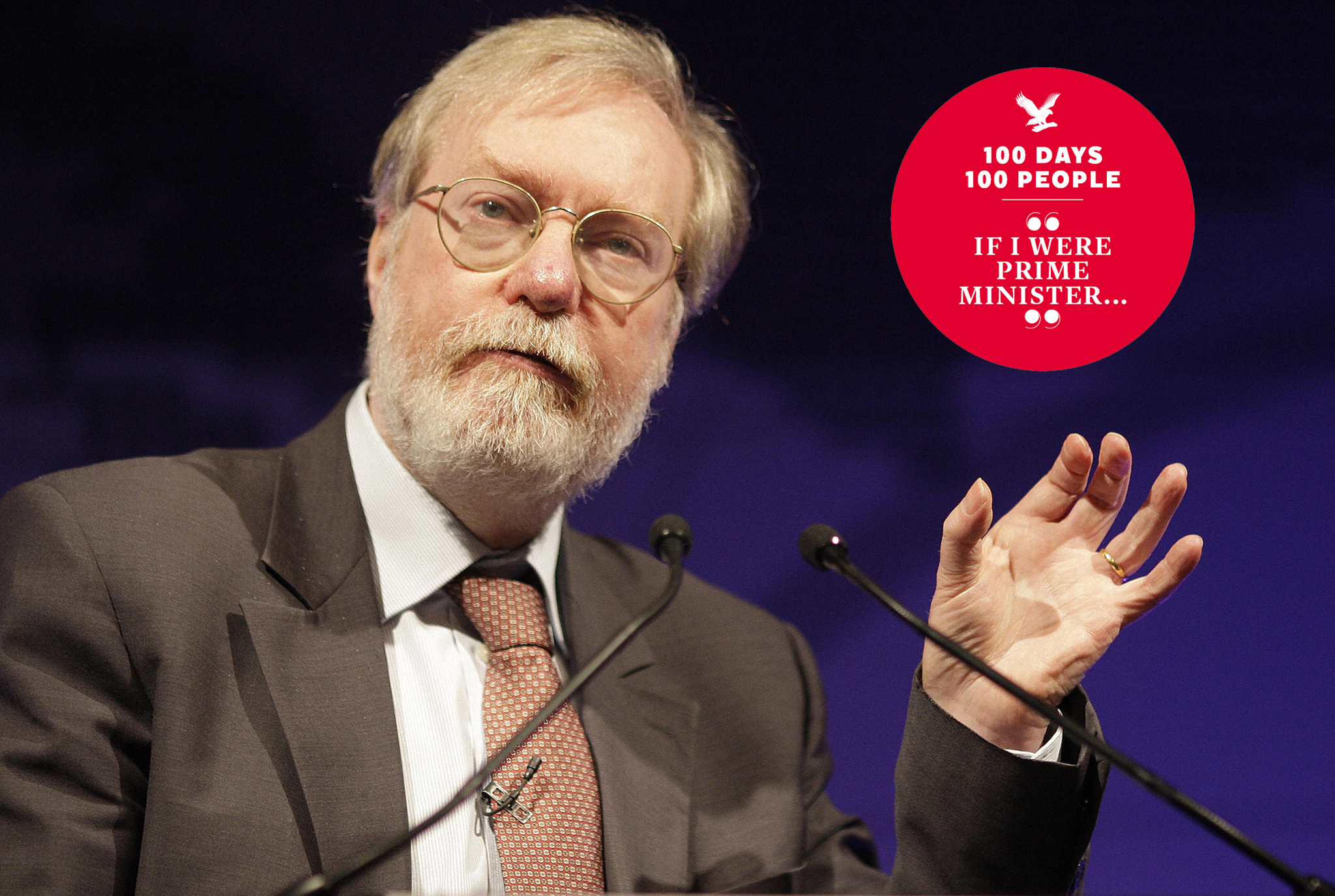If I were Prime Minister: I'd introduce a 70% tax on salaries above the top level in the public sector
Our series in the run-up to the General Election – 100 days, 100 contributors, but no politicians – continues with the economist and author

Your support helps us to tell the story
From reproductive rights to climate change to Big Tech, The Independent is on the ground when the story is developing. Whether it's investigating the financials of Elon Musk's pro-Trump PAC or producing our latest documentary, 'The A Word', which shines a light on the American women fighting for reproductive rights, we know how important it is to parse out the facts from the messaging.
At such a critical moment in US history, we need reporters on the ground. Your donation allows us to keep sending journalists to speak to both sides of the story.
The Independent is trusted by Americans across the entire political spectrum. And unlike many other quality news outlets, we choose not to lock Americans out of our reporting and analysis with paywalls. We believe quality journalism should be available to everyone, paid for by those who can afford it.
Your support makes all the difference.Here is an agenda that would upset so many vested interests and challenge so many shibboleths that it has zero chance: it would unite left and right in outrage. But it would do a lot of good.
Tax: Introduce punitive tax rates of 65-70 per cent above the top levels of public sector salaries (which have at least some element of social acceptance).
The purpose would not be to raise money but to signal disapproval of incomes that undermine social cohesion. Forget the increase 45 per cent to 50 per cent; it creates the false impression that other people can finance public spending, whereas spending has to be sanctioned by the taxation of ordinary people.
End relief for buy-to-let, so that young people are not outbid by the affluent retired. Abolish non-dom status, and tax retrospective capital gains on property owned by non-residents.
Shrink the finance and legal sectors by a combination of taxation and regulation. Their activities are predominantly rent-seeking rather than productive and they siphon off talent that could otherwise be socially useful.
Public spending: A big increase in infrastructure spending partially offset by a reduction in welfare spending. At current interest rates, redressing our acute infrastructure deficit makes overwhelming sense. However, it has to be made clear that an increased deficit is not a reflection of political weakness: welfare spending could be reduced, for example by limiting child support to the first two children and a lower income threshold than at present.
Education: Introduce free, publicly run pre-school education for everyone, from age 2.5 years (as in France).
Run a major child literacy campaign targeted at families. Sack the bottom 5 per cent of secondary school teachers, measured by their value-added (yes, these things can now be measured accurately and without social bias).
The evidence that the worst teachers do huge damage to children is chilling. Raise university fees, using the money to expand the number, quality and status of apprenticeships, aiming for the German model. (Reducing university fees is about the most regressive policy it is possible to dream up).
Health: Stop the pretence that the NHS is the envy of the world, and switch to the French system which works much better. In enables genuine patient choice.
Constitution: Our political system is now so abusive of basic democratic principles that the legitimacy of political power will rapidly erode. In needs urgent and deep reform.
Introduce PR to restore a defensible relationship between votes and seats. Introduce a normal federal system (like many other countries), in which each component of the UK has the same powers while a federal parliament controls macroeconomic and international policies. Introduce the Primaries system for the selection of party leaders.
Sir Paul Collier's latest book is 'Exodus: Immigration and Multicuturalism in the 21st Century'
Join our commenting forum
Join thought-provoking conversations, follow other Independent readers and see their replies
Comments